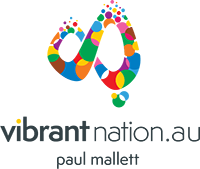thinking tool.
The one about deliberately and authentically advancing people into good, valued lives
William’s Model of Citizenhood Support
Credit: Robbie Williams
Summary:
According to William’s (see link to the right for his 2013 resource book), The Model of Citizenhood Support is a framework for advancing people, particularly those living with increased vulnerability, into good, valued lives. The model is founded on an understanding that every citizen seeks to live a good life, and a good life is derived from, and sustained through, four key areas of capacity and growth: personal capital, knowledge capital, material capital, and social capital.
Real world application:
The Model of Citizenhood Support can be used in any interpersonal service, program or initiative that engages people living with increased vulnerability and whose circumstances mean they are at greater risk of being excluded from typical life chances. In the context of community service delivery this includes, but is not limited to, older people, people living in poverty, homeless people, people living with disability, and/or people living with ongoing mental health issues. Australia’s National Disability Insurance Scheme (NDIS) should/could have services and service providers operate in a manner that is consistent with the tenants of The Model of Citizenhood Support.
Concept detail:
The Model of Citizenhood Support is based on the notion of four different but interrelated ‘Capitals’: personal, knowledge, material, and social. Under this model people living with increased vulnerability are assisted to deliberately and progressively access and build each Capital.
Personal Capital refers to one’s sense of self worth, potential, strengths, confidence, control, and vision of the future.
Knowledge Capital refers to what we know, how we make best use of that knowledge, and how we access more knowledge over the course of our lives.
Material Capital refers to the tangible assets in one’s life that have material value. At a personal level this includes growing and maintaining access to items like money, property, and possessions. At a public level this includes growing and maintaining access to sport and recreation venues, telecommunications, libraries, government services, public transport and community services.
Social Capital refers to the connection and fellowship with other humans in our lives. Where connection is the contact we have with others, and fellowship represents the deeper bonds with form with some people we connect with, as in close friends, and life partners.


